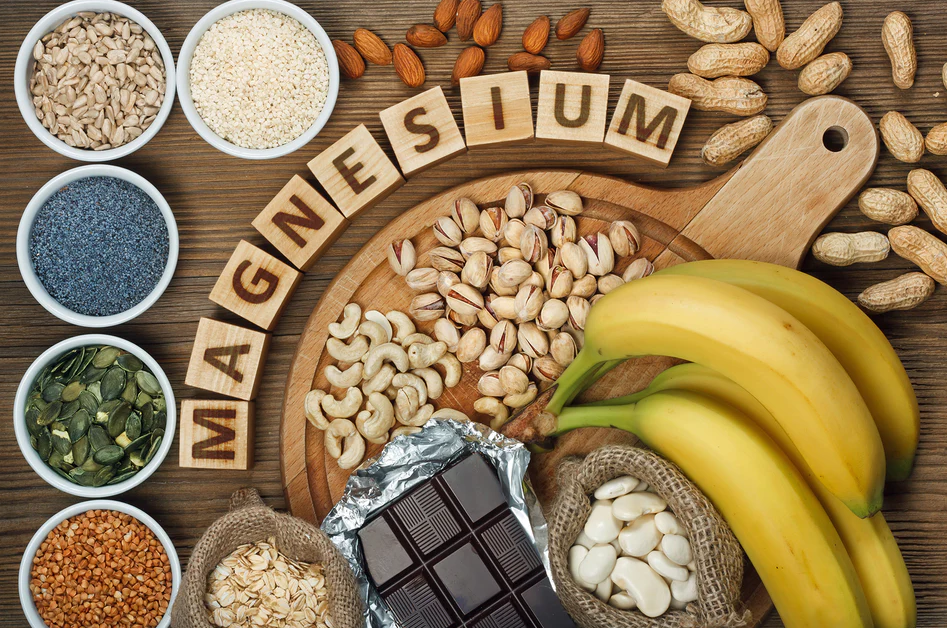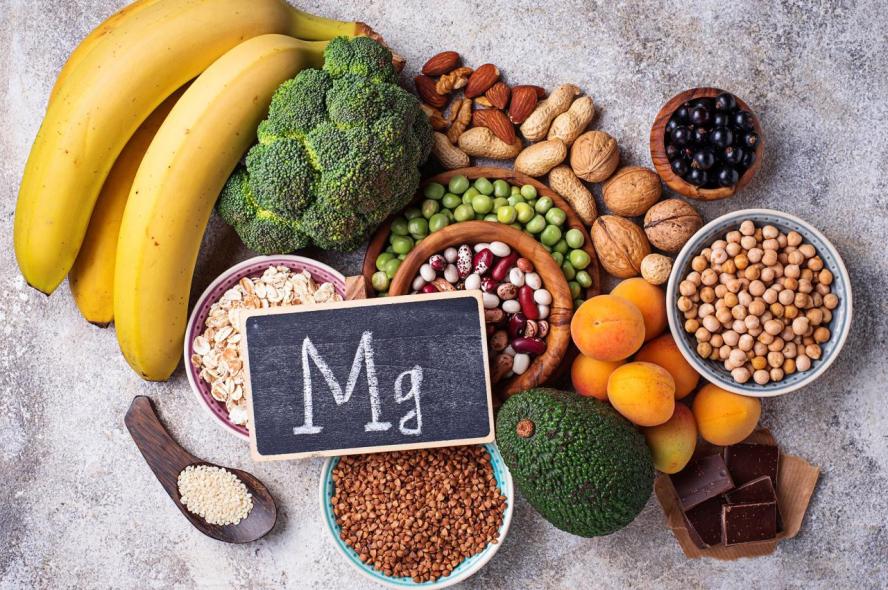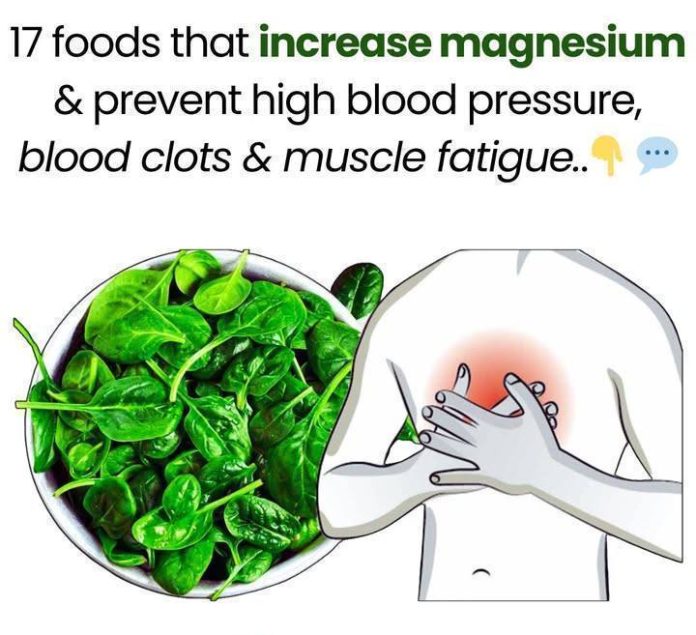Magnesium is an essential mineral that plays a crucial role in hundreds of bodily functions. It helps regulate muscle and nerve activity, blood sugar levels, and blood pressure, while also contributing to protein synthesis and bone strength. Many people unknowingly suffer from low magnesium levels, which can lead to muscle fatigue, increased risk of blood clots, and hypertension. Incorporating magnesium-rich foods into your diet can be an effective way to support overall wellness and prevent chronic health issues.
How Magnesium Supports the Heart
One of magnesium’s key benefits is its ability to maintain a healthy cardiovascular system. It helps keep blood vessels relaxed, preventing unnecessary strain on the heart. Studies show that magnesium deficiency is linked to elevated blood pressure and irregular heart rhythms. By consuming enough magnesium, you can reduce your risk of heart disease, stroke, and blood clot formation.

Best Foods Rich in Magnesium
A variety of everyday foods are excellent sources of magnesium. Dark leafy greens, such as spinach and kale, are nutrient powerhouses that also deliver fiber and antioxidants. Nuts and seeds, including almonds, cashews, pumpkin seeds, and sunflower seeds, are also packed with magnesium and make an easy, healthy snack. Legumes like black beans, lentils, and chickpeas are another great way to boost your intake while adding plant-based protein to your meals.
Whole grains such as oats, quinoa, and brown rice are beneficial as well, offering not only magnesium but also sustained energy and digestive support. For those who enjoy fruit, bananas, avocados, and figs are great additions to a magnesium-rich diet.
The Role of Seafood and Dairy
Seafood can also help increase your magnesium intake. Fatty fish like salmon, mackerel, and tuna provide not only magnesium but also omega-3 fatty acids, which support brain health and reduce inflammation. Dairy products such as yogurt and milk contain moderate amounts of magnesium along with calcium, which together help maintain strong bones and healthy teeth.
Magnesium and Muscle Function
Athletes and active individuals often experience muscle cramps, which can be a sign of low magnesium levels. Magnesium supports proper muscle contraction and relaxation, which is crucial for recovery and performance. Consuming magnesium-rich foods after a workout can aid in muscle repair and reduce fatigue.
Daily Intake Recommendations
The recommended daily allowance (RDA) for magnesium varies by age and gender, but for most adults, it ranges between 300 and 400 milligrams per day. Rather than relying solely on supplements, nutrition experts encourage people to get their magnesium from whole foods whenever possible. This approach also provides additional nutrients like fiber, vitamins, and healthy fats.

Conclusion
Magnesium is an overlooked but vital nutrient that contributes to heart health, muscle function, and blood pressure regulation. By adding magnesium-rich foods like leafy greens, nuts, legumes, whole grains, and seafood to your meals, you can naturally improve your health and lower your risk of common problems such as blood clots, fatigue, and hypertension. A well-balanced diet rich in magnesium not only supports physical health but also boosts energy, focus, and overall our quality of life.

















